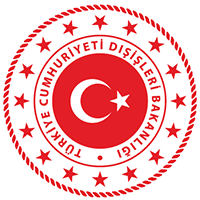
The European Commission has today published the 2020 Enlargement Strategy and the Country Reports prepared for all candidate and potential candidate countries, including Turkey. The EU’s biased, unconstructive and double-standard based stance is reflected in this year’s Report yet again. This year’s Report continues to criticize Turkey by means of unfounded arguments, while still not referring to its own unfulfilled responsibilities and commitments. Prejudiced, unjust and disproportionate criticisms about our system of government, elections, fundamental rights, certain court rulings, administrative decisions and legitimate measures taken while combatting terrorism as well as our foreign, security and economic policies reveal how far the Report is from being objective.
Turkey is, first and foremost, a candidate country committed to the accession process, which in fact has been obstructed by the narrow-minded stance adopted by certain EU circles. Despite certain efforts to the contrary, Turkey has not distanced itself from the EU and is still committed to the accession process. The Commission was expected to strongly emphasize this fact and refrain from any distinction between Turkey and the Western Balkans in its enlargement strategy.
The sections of the Report regarding the Eastern Mediterranean, Aegean and the Cyprus issues are entirely based on Greek and Greek Cypriot arguments. This situation tarnishes the Commission’s neutrality. We reject this biased and unlawful perspective that neither contributes to solving the Cyprus issue nor bringing about stability in the Aegean and Eastern Mediterranean. Moreover, being able to hijack Turkey-EU relations to this extent, the Greek and Greek Cypriot duo leads the EU away from strategic wisdom and vision and also undermines EU’s own interests. With no claims on any one’s rights, Turkey is determined to protect its own rights and those of the Turkish Cypriots.
In the report, the section on the political criteria and the Chapter on the Judiciary and Fundamental Rights in particular have been written with an understanding that disregards the challenges faced by Turkey and the threats posed by terrorist organisations, such as PKK/PYD/YPG, FETO and DAESH. The language used in this section can serve no purpose other than satisfying anti-EU and anti-Turkey radical circles in Europe. Turkey, in accordance with universal values, strikes a balance between fundamental rights, democracy and the rule of law on one hand and security on the other.
Furthermore, it is a serious contradiction that the EU which claims to be founded on common values, has not yet opened the negotiations on Chapter 23 on Judiciary and Fundamental Rights and Chapter 24 on Justice, Freedom and Security. Turkey expects the EU to share the burden and fulfill all its commitments arising from EU-Turkey Statement of 18 March, instead of praising Turkey with respect to its humanitarian policy on irregular migration management.
Even though it is stressed in the Report that Turkey’s economy has a good level of capacity to cope with the competitive pressure and market forces within the Union, some policies pursued by Turkey are criticized in terms of the criterion of a functioning market economy. Turkey is well integrated with the EU market in terms of both trade and investment links and is directly affected from economic problems within the EU and the fluctuations in global markets. However, by taking the necessary measures, Turkey is trying to go through this difficult period with a minimum level of damage which deeply affects even the EU Member States. Furthermore, it is revealing to report backsliding on Customs Union related areas, whereas the EU itself has not started negotiations to update the Customs Union.
The Report indicates that Turkey has reached a good level of alignment in 21 Chapters and also reiterates that various levels of progress have been achieved in 17 Chapters during the last year. It is a clear testament of Turkey’s will to continue its endeavour to align with the EU acquis, despite the political obstacles it has encountered during the accession process.
It is our sincere wish that the EU approaches Turkey, a candidate country, taking into account our continent’s greater interests and common vision, instead of the selfish and narrow interests of certain circles and develops Turkey-EU relations in all its dimensions in line with the EU membership perspective.